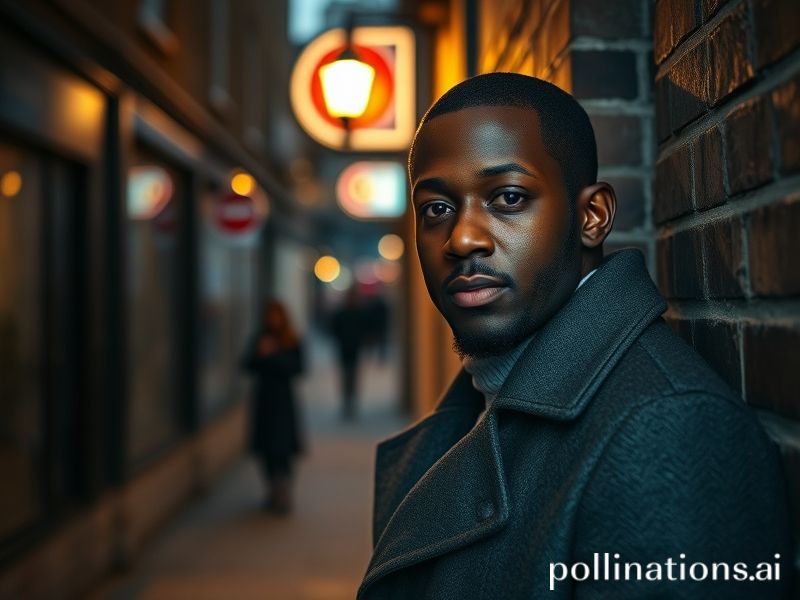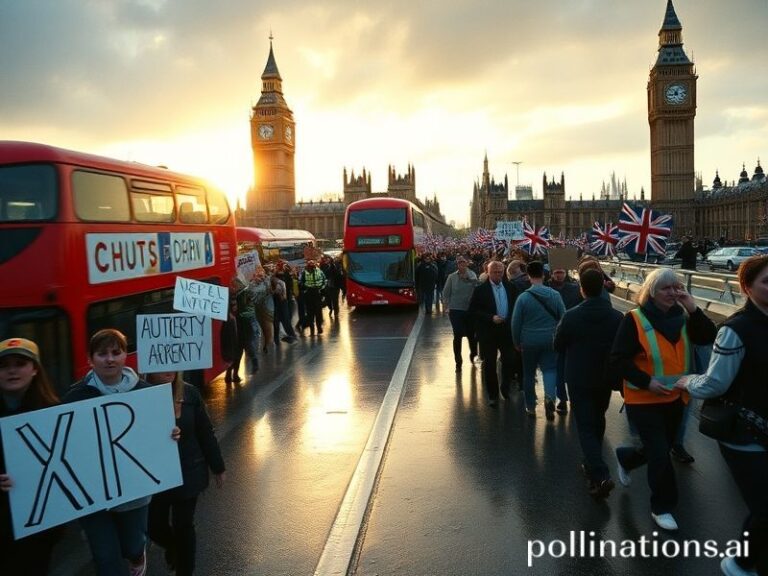Damson Idris: The Peckham Export Quietly Rebooting the British Empire—One Stream at a Time
Damson Idris and the Soft-Power Gambit: How a Peckham Kid Became the United Nations of Netflix
By our London bureau chief, nursing a lukewarm Negroni and a deeper chill about the future
Damson Alade-Bo Idris—yes, that really is his name, as if his parents anticipated LinkedIn’s fetish for multi-hyphenates—has spent the past decade doing something the Foreign Office keeps failing at: exporting British cool without looking like a colonial re-enactment society. From Brixton rooftops to Beverly Hills soundstages, the 32-year-old has become a one-man trade surplus, proving that the empire now sells premium television back to the Americans who once bought our opium. Globalisation, like karma, enjoys the occasional plot twist.
His breakout turn in “Snowfall” (2017-2023) was ostensibly about CIA complicity in the 1980s crack epidemic, but let’s be honest: for most international viewers it was a crash course in how U.S. foreign policy works when nobody’s filming. Audiences from Lagos to Lahore nodded knowingly—ah yes, destabilise a region, flood it with narcotics, then act shocked when the locals improvise economies. Idris’ Franklin Saint, equal parts corner-boy ambition and hedge-fund calculus, became a dark mirror for every post-colonial entrepreneur who ever figured out that the rules are written in disappearing ink. The show streamed in 192 countries, which is 25 more than recognise the State of Palestine; soft power, like credit card points, accrues quietly.
Hollywood, never one to miss a revenue stream, responded with the enthusiasm of a tax haven. Suddenly Idris was opposite Brad Pitt in “Ferrari” (still more believable than Elon Musk’s autonomous driving claims), opposite Anthony Mackie in “Outside the Wire” (Netflix’s algorithmic fever dream about drone warfare), and opposite actual drones in “The Peripheral” (Amazon’s wager that dystopia sells better with British vowels). Each role expanded the Idris cinematic universe into new geopolitical markets: Italian industrial nostalgia, Slavic cyber-anxiety, African-American existential dread—collect the whole set, kids!
The global significance here is not merely that another handsome actor crossed the Atlantic. It’s that Idris represents a post-Brexit Britain’s desperate pivot from shipping containers to streaming packets. When the Royal Navy can’t patrol Hormuz without borrowing a French tanker, you dispatch a Peckham boy to patrol the algorithms. Britain’s remaining superpower is cultural; if you can’t rule the waves, at least monetise the memes. Every time a teenager in Jakarta queues up “Snowfall,” the UK’s services-export ledger ticks upward—digital opium for the 21st century, minus the gunboats.
There is, naturally, a darker punchline. While Idris collects GQ Man of the Year trophies and courts the Met Gala like it’s a visa interview, Peckham itself is gentrifying faster than you can say “artisanal jollof.” The same global capital that hoists one local son onto billboards is busy pricing his neighbours out of postcode SE15. International audiences celebrate the myth of the self-made immigrant kid; meanwhile, landlords celebrate the myth of the self-replacing immigrant tenant. Progress, as always, is unevenly distributed.
Still, one must admire the efficiency. In previous centuries, projecting influence required gunpowder and dysentery. Now it requires a SAG card and some decent lighting. Idris has leveraged that soft-power arsenal into production deals with Apple, a development slate spanning three continents, and enough industry goodwill to survive even a superhero flop. (He tested the waters by voicing a cartoon reindeer—globalisation demands diversification.)
What does it all mean? Simply this: in an era when nation-states weaponise supply chains and TikTok dances, cultural export becomes another theatre of conflict. Damson Idris isn’t just playing spies and drug lords; he is one—smuggling British identity past customs under the guise of entertainment, laundering accents into assets, trafficking stories across borders without a single tariff. And like any good smuggler, he makes it look effortless, even as the geopolitical receipts pile up somewhere in Whitehall.
In the end, the world doesn’t need another aircraft carrier. It needs another season. Roll credits, cue subtitles in forty languages, and pray the Wi-Fi holds—because if the stream collapses, so does the empire.







